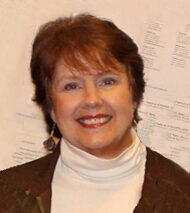
Nancy Huntting, Aesthetic Realism consultant, writes:
This issue of TRO—titled “How Do We Want to See?”—does thrilling new justice to the understanding of people and the value of books. What makes a written work so good it becomes a “classic”? Is there a way of seeing the world and people in these works that we need to learn from, and can learn from? Yes! This TRO gives an example of how one person can see another person more truly, more accurately—and it’s the way of seeing that can really end the cruelty between people and nations. The most exciting, urgent knowledge there is, needed everywhere, is in “How Do We Want to See?,” the current issue of The Right of Aesthetic Realism to Be Known.
The commentary by Ellen Reiss begins:
Dear Unknown Friends:
We begin, here, to serialize a lecture that is about humanity’s most eminent, treasured written works—and about the biggest matters in the daily life of everyone, things we worry about, hope about, are confused about. Eli Siegel gave this talk in 1972. Its title is A Poem Is in the World. And its basis is the principle on which Aesthetic Realism itself is based: “The world, art, and self explain each other: each is the aesthetic oneness of opposites.”
For this first installment of a rich and vivid yet leisurely talk, I’ll mention some of the central matters the lecture has to do with.
1) Mr. Siegel speaks about those books that are “classics,” works felt over the centuries to be irreplaceable, and that are sometimes called “the great books.” Is each of these a oneness of the largeness of things and a single individual who is the author? Does a classic put together the opposites which are the world-as-size and a particular human self?
2) And is that world (present in an enduring work) itself a oneness of rest and motion, unity and multitudinousness, sameness and difference, the known and unknown, the expected and surprise—and other opposites?
3) Is every good poem like that too? Yes. The poem’s subject has been seen so truly by the person writing that we feel in the lines a oneness of reality’s opposites, become poetic music.
4) And is this what we want for ourselves, for our so personal, particular selves: to make a one of opposites that come from the world and are in poems and lasting books? Yes—because those opposites are intimately ours too, and often battle in us….Read more